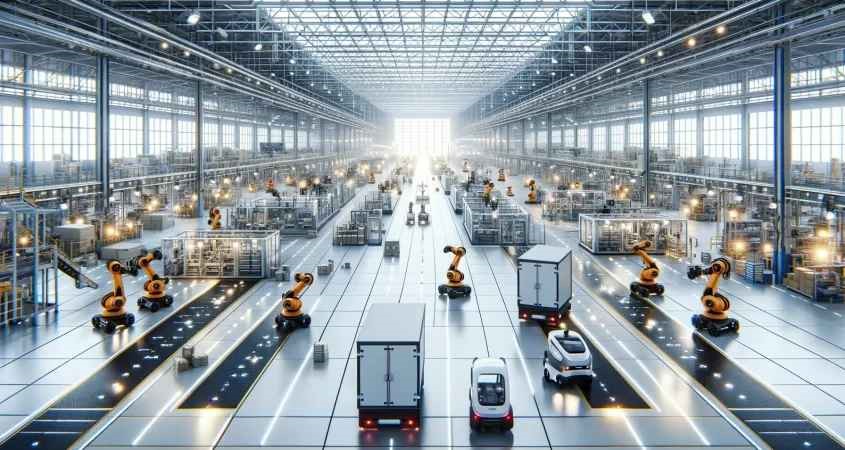Feb21

In a recent episode of the Sustainable Supply Chain Podcast, I delved into the transformative realm of Industry 4.0 with Ferdi Reynolds of SuperSeed VC. This discussion shed light on the vast opportunities and intricate challenges present within Industry 4.0, underscoring the pivotal roles of innovation, sustainability, and efficiency in overhauling our manufacturing and supply chains.
Industry 4.0 signifies a monumental leap towards integrating physical production with advanced digital technologies, such as AI, IoT, and big data. This integration aims to create a more connected and efficient ecosystem for manufacturing and supply chain operations.
Ferdi Reynolds highlighted the potential of Industry 4.0 to boost the global GDP by a whopping $15 trillion by 2030. This isn't merely optimistic speculation; it's a projection supported by the tangible benefits of digital transformation in manufacturing. For instance, smart factories leveraging IoT technologies can increase productivity by up to 30%, according to PwC's 2018 Global Digital Operations Study.
The transition towards Industry 4.0 has been gradual, revealing a significant opportunity for startups and investors to catalyze change. Innovation in this space is crucial for enhancing manufacturing efficiencies and embracing sustainability. One example is AI's ability to reduce energy consumption in factories, demonstrating a practical application of technology in achieving sustainability goals.
Sustainability is not just an ethical choice but a strategic necessity in the era of Industry 4.0. The World Economic Forum reports that digitalization in logistics and supply chain operations could lead to a 20% reduction in carbon emissions. This shift towards more sustainable manufacturing processes is essential in the face of escalating climate change concerns and the finite nature of our planet's resources.
The adoption of Industry 4.0 technologies facilitates the efficient use of resources, minimizes waste, and reduces energy consumption, thereby diminishing the environmental footprint of manufacturing activities. Moreover, it aligns with the increasing consumer demand for environmentally responsible products, offering a competitive edge to businesses that prioritize sustainability.
The path to fully integrating Industry 4.0 is laden with obstacles, from the complexity of technological integration to the necessity for a skilled workforce. However, the pursuit of a sustainable and efficient manufacturing sector is imperative for economic resilience and environmental stewardship. As the International Energy Agency points out, the industrial sector accounts for a quarter of global energy system CO2 emissions, underscoring the urgent need for sustainable manufacturing practices.
The insights shared by Ferdi Reynolds serve as a primer to the vast landscape of Industry 4.0, where technology meets sustainability. If the prospect of a manufacturing sector that is both economically vibrant and environmentally responsible excites you, I invite you to explore this topic further by listening to our full conversation.
Listen to the full episode here
This is more than a technological revolution; as I have been saying for quite some time now, it's a sustainability imperative. By embracing Industry 4.0, we have the opportunity to redefine manufacturing as a force for good, ensuring prosperity and ecological balance for future generations. Let's embark on this journey together, towards a sustainable industrial future.
By Tom Raftery
Keywords: Sustainability, Supply Chain, Manufacturing
 The Corix Partners Friday Reading List - February 13, 2026
The Corix Partners Friday Reading List - February 13, 2026 The Questioning Leader: Rethinking How We Learn, Listen, and Lead
The Questioning Leader: Rethinking How We Learn, Listen, and Lead The Straight Story of Leadership: Purpose, Patience, and Presence
The Straight Story of Leadership: Purpose, Patience, and Presence Coherence Is Not Culture — It Precedes It
Coherence Is Not Culture — It Precedes It Death of the Data Silo
Death of the Data Silo